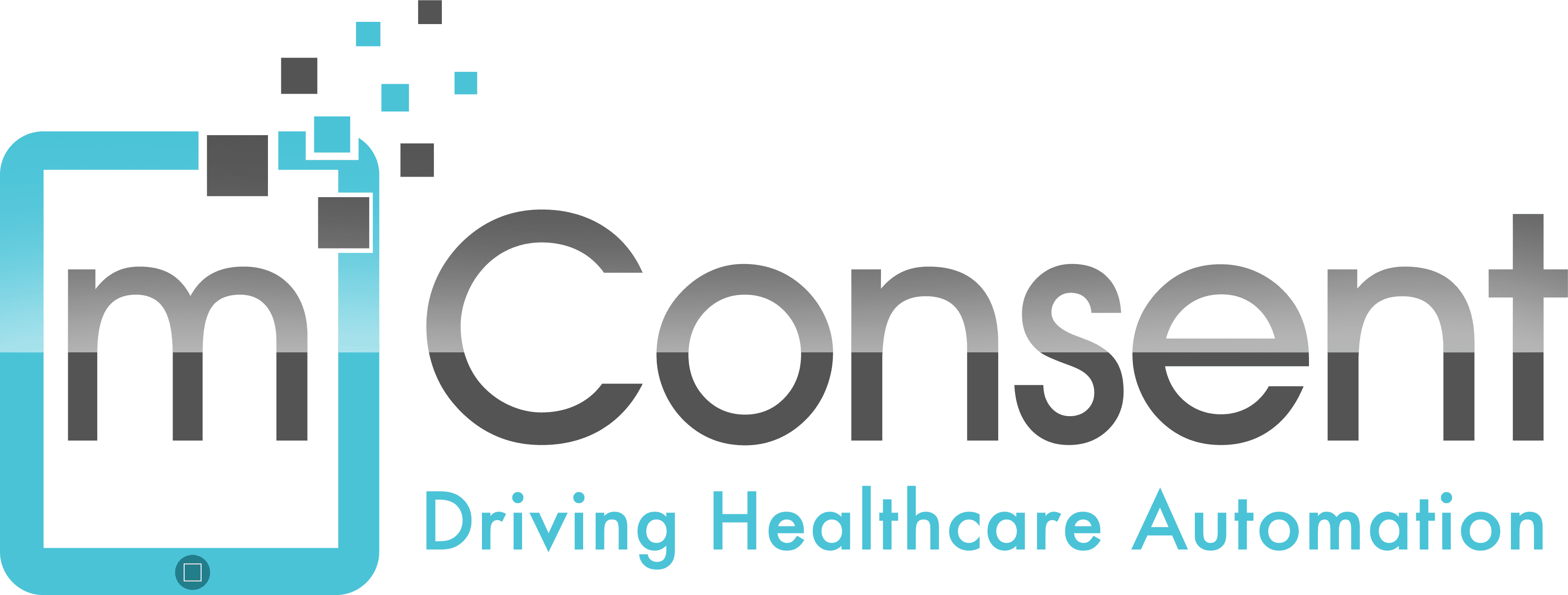Informed consent is not merely a standard operating procedure in the current dental industry; rather, it is the cornerstone of ethical conduct, patient confidence, and legal defense. In addition to ensuring that patients are aware of the various treatment options available to them, dentists are responsible for ensuring that patients are also confident and at ease when making decisions regarding their health.
On the other hand, what happens when the operation is rushed, unclear, or inadequately noted on the record? Genuine dangers include the possibility of legal action, dissatisfied patients, or, even worse, irreparable damage to your clinic's reputation. Therefore, practices can build stronger safeguards through the use of digital informed consent, thanks to modern technology such as the dental patient engagement tool offered by mConsent. How can your practice apply a strategy that is patient-centered, efficient, and safe? Let's examine what informed consent means, why it is more vital than ever, and how it can be effectively utilized.
What Is Informed Consent in Dentistry?
It is not enough to simply sign a document to have informed authorization. The dentist and the patient engage in meaningful communication that flows in both directions, built on the principles of respect, clarity, and education.
At its core, informed consent involves:
- Explaining the diagnosis in clear, understandable terms
- Offering details on the proposed treatment, including steps involved
- Discussing potential risks and complications honestly
- Presenting alternatives even if that means doing nothing at all
- Giving patients space to ask questions and express concerns
When handled thoughtfully, informed consent becomes a crucial component in establishing trust and setting the tone for long-term patient relationships.
Why Informed Consent Matters
Legal Protection for Your Practice
In dentistry, lawsuits often result from poor communication rather than inadequate clinical treatment. If a patient feels that they were not thoroughly informed or that the hazards were not adequately understood, your office may be subject to legal scrutiny.
Not only is it wise, but also your first line of defense in the event of something going wrong is having a thorough, recorded consent procedure.
Builds Trust and Strengthens Relationships
When patients feel informed, they feel respected. Taking time to explain treatment plans with empathy and transparency creates lasting trust and trust is what keeps patients coming back and referring others.
Improves Treatment Acceptance
Patients are more likely to proceed with treatment when they understand the "why" behind it. Informed patients are less likely to cancel or delay care which means healthier outcomes for them and smoother operations for you.
The Anatomy of a Strong Consent Process
A successful informed consent process is both human-centered and system-supported. Here's what it should look like:
Clear, Simple Communication
Use plain language to walk your patients through:
- What the procedure is
- Why it's necessary
- What outcomes can they expect
- Any discomfort, risks, or recovery issues
- What other options do they have
Avoid jargon. Use visuals or models to help clarify the treatment.
Patient Understanding
Allow patients time to consider their options and provide an opportunity for them to ask questions. This is about helping their health trip; it is not a commercial pitch. Promote honest communication to help them to feel heard.
Voluntary Agreement
Consent should never feel forced. Patients need to know they can decline or postpone treatment. Their comfort and agency are non-negotiable.
Document Everything
Whether it's a conversation or a signed form, document it. Having a record protects both you and the patient.
Paper vs. Digital Consent: Why the Shift Matters
Traditional paper forms are easy to misplace, hard to update, and often incomplete. They slow down your front desk, frustrate patients, and put you at risk of compliance issues. Enter mConsent a modern, digital solution that completely transforms the consent process.
With mConsent, practices can:
- Provide patients with digital consent forms before their visit
- Use secure, HIPAA-compliant digital signatures
- Store all documentation in one place accessible anytime
- Reduce manual errors and administrative workload
- Improve compliance with state and federal regulations
This isn't just a tech upgrade it's a patient experience upgrade.
Common Mistakes Dental Practices Make with Informed Consent
Even experienced teams can make missteps. Here are some to watch for:
🚫 Speeding Through Explanations
Patients need time. Rushing the process can be confusing and risky.
🚫 Failing to Present All Options
Ethically, every reasonable treatment route should be discussed, including doing nothing.
🚫 Using Verbal Consent Only
If it's not written, it didn't happen (legally speaking). Document everything.
🚫 Speaking "Dental" Instead of English
Meet your patients where they are speak plainly and kindly.
How mConsent Simplifies Informed Consent
mConsent doesn't just digitize forms it reimagines the entire patient engagement experience. It empowers practices to deliver clarity, compliance, and compassion at every step.
Here's how:
✅ Customizable Consent Templates
Easily edit forms to suit your procedures without having to reinvent the wheel every time.
✅ HIPAA-Compliant Digital Signatures
No more scanning, printing, or chasing papers. Patients can sign securely from anywhere.
✅ Integration with Your Existing System
mConsent works with your current practice management tools for a seamless workflow.
✅ Accessible Anytime
Staff and patients can access signed documents at any time no need to dig through file cabinets.
Legal and Ethical Considerations: Why You Can't Skip It
It's the Law
Informed consent is legally required for any dental treatment that involves risk. Ignoring or glossing over the process can lead to:
- Civil lawsuits
- Licensing issues
- Disciplinary action from dental boards
It's Your Ethical Duty
Organizations like the ADA emphasize patient autonomy and transparency. It's not just about rules it's about doing right by your patients.
Best Practices for Your Consent Process
Want to take your informed consent process from good to exceptional? Try these best practices:
- Train your team on how to communicate consent clearly and compassionately
- Update consent forms regularly based on laws and treatment changes
- Leverage digital tools to track and timestamp consent
- Adjust consent conversations based on treatment complexity
- Review consent at multiple points (e.g., consult, follow-up, pre-op)
These small shifts can have a significant impact on how your practice is perceived and protected.
The Bigger Picture: Why Informed Consent Deserves More Attention
Informed consent is not just about paperwork. It's about creating a practice culture where patients feel informed, respected, and safe. It signals that your team prioritizes care and clarity above all else.
When you prioritize informed consent:
- Patients trust you more
- You reduce your legal risks
- Treatment plans get accepted more often
- Your reputation grows stronger
And with mConsent, that process becomes easier, faster, and more reliable for you and your patients alike.
Ready to Go Digital with Informed Consent?
If you're still relying on paper forms and hurried conversations, it's time to modernize your approach. mConsent provides you with the tools to streamline informed consent, enhance patient communication, and maintain a protected and professional practice.
With features like:
- Digital intake forms
- Self-check-in kiosks
- Secure 2-way texting
- Online scheduling and appointment reminders
- Payment flexibility with mPayr
- And even an AI receptionist (Zaha.AI)
You're not just checking boxes you're transforming how you connect with your patients.
Final Thoughts: Consent Is Care
Informed consent isn't just about compliance it's about compassion. It's about slowing down, explaining clearly, and respecting the patient's voice. With tools like mConsent, you can make that experience easier for your team and more meaningful for your patients.
Start making informed consent a standard of excellence in your dental practice not an afterthought.
Explore mConsent today and see how digital consent solutions can protect your practice and empower your patients.
""

![HIPAA Release Form – All you Need to Know [Instant Download]](https://mconsent.net/wp-content/uploads/2021/09/HIPAA-Release-Form-All-you-Need-to-Know-Free-Release-Form.jpg)















